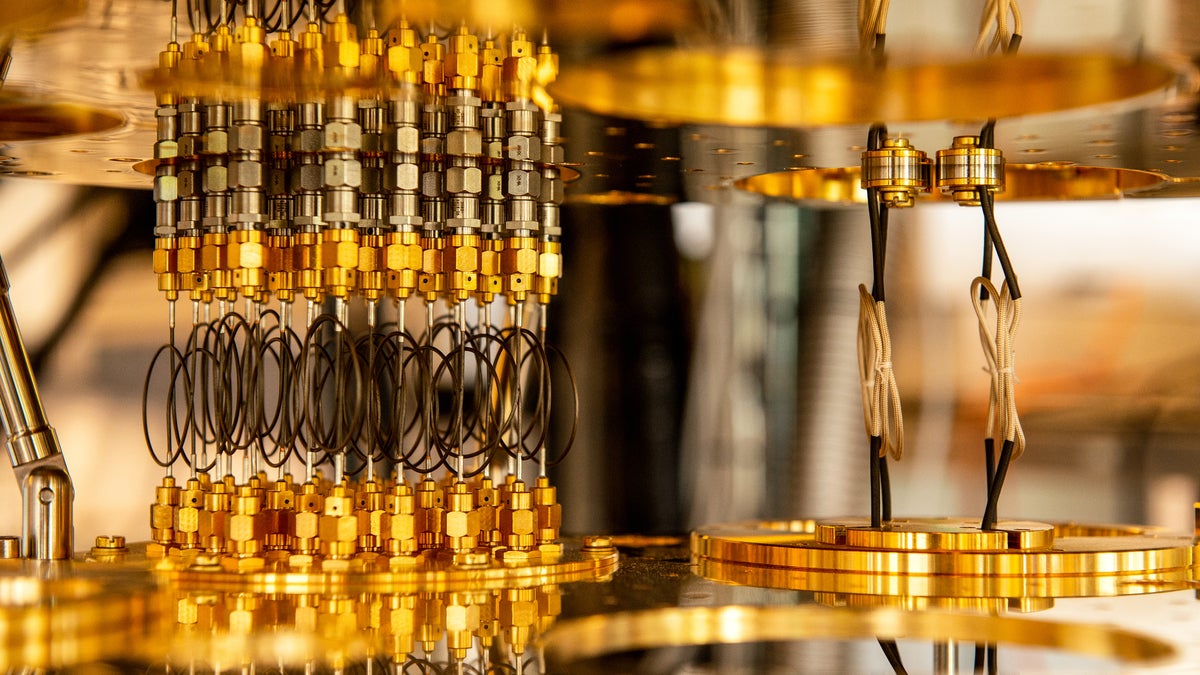Quantum mechanics, a fundamental theory in physics that describes the physical properties of nature on an atomic scale. This theory also has mystical facts which are not possible to observe in day-to-day life physics.
Quantum computing is the use of quantum mechanics to solve complex computational problems at a faster speed than classical computers. Quantum computing study is the subfield of Quantum Information Science.

Quantum computers will not replace classic computers, in turn, they will provide a faster solution to solve problems.
The use of classical computers will be the easiest and the economical solution for normal problems but quantum computers will provide better advancement in various fields, from medical sciences to material sciences.
Quantum Teleportation is a process of information mainly quantum information can be transmitted from one location to another with the help of entangled quantum shared between the sender and the receiver. To improve the fault tolerance power in quantum computers, teleportation is used.
How Quantum Computer works:
Unlike normal computers that use electrical signals or optical signals in the form of a sequence of bits, 0’s and 1’s, these computer uses Quantum Bits (Qubits).
Qubits are the basic unit of memory in quantum computers and typically subatomic particles such as photons or electrons. States of quantum objects are used to create quantum bits. Qubits are made from the electrons and nucleus of semiconductor atoms, Phosphorous, or silicon.
Superposition and Entanglement are the two main fundamentals used in quantum computers.
Superposition of qubits is the ability to simultaneously be in multiple states. Qubits can have numerous maximum possible values, unlike classical computers bits. In short, it’s a combination of states.
Each qubit can represent both 0 and 1 at the same time.
Entanglement of qubits, when two qubits are in superposition are correlated with one another meaning the state of one bit whether it’s a 0 or 1 or both depends on one the state of another bit.
These two principles together make a powerful quantum computer work in a better way. These computers can solve complex computations faster. Suppose if a classical computer can have 2n (n is no. of possible outcomes) possible combinations to solve a problem then quantum computers can have 2n possible combinations.
Classical computers test every possible way to achieve certain goals taking one way at a time whereas quantum computers use every possible way at the same time.
Challenges for quantum computers:
The functionality of quantum computers entirely depends on the superposition and entanglement of qubits.
The building of quantum computers entirely depends on holding an object in a superposition state long enough to carry out various processes on them. But this state is very hard to maintain as it loses it coherence as soon as this state is achieved. Decoherence to this in-between state is the problem.
Quantum computers require significant error correction as photons are prone to errors.
Another issue is how far entangled states or photons can travel.
Implementation of quantum computers can be done in two ways: analog and digital. Analog approaches are further divided into a quantum simulation, quantum annealing, and adiabatic quantum computation. Digital quantum computers use quantum logic gates to do computation. Both approaches use quantum bits or qubits.
Quantum computers are used to solve specific algorithms that classical computers can also perform but in a faster way.
The application of quantum computers is broad. They are used anywhere to solve large, complicated systems that need to be simulated. More efficient products like building new materials for batteries in electric cars, better medicines, more secured communication, or delivery of data securely through quantum security key. Scientists believe that quantum computers can even pave a way for the cure of Alzheimer’s in the future. Financial market understanding, better weather forecast, and understanding of quantum physics in a better way will be the most valuable outcomes of these computers.
Cryptography is the key application. Classical computers are slow, expensive, and not very practical while quantum computers can be super-fast. The crypto-keys generated by these computers are almost impossible to break and hack due to entanglement.
Can I have one quantum computer:
The answer is NO!!
Quantum computers are very likely to interfere. Any type of interference can lead to decoherence, so to maintain a superposition state from any kind of interference especially electrical interference, these computers are isolated and chilled down to absolute zero. Outer space is less cold than that.
In the future, these computers will be accessed remotely by academicians and businesses. IBM and Google are the main two competitors.
Till now, quantum computers with 50 qubits are available which is not powerful enough but adding a single qubit means an exponential increase in processing capacity.
In Oct 2019, Google published one paper claiming the point of quantum computers supremacy. But IBM said otherwise, they claimed and said an ideal simulation of the same task performed by Google can be performed on a classical system in 2.5 days and with far greater fidelity.
Quantum supremacy is to describe the point where quantum computers can do things that classical computers can’t. The original meaning of the term “quantum supremacy,” as proposed by John Preskill in 2012, this threshold is yet not achieved.
Quantum computers definitely have enormous capabilities to change the world but the future is not predictable. As of now, we can wait for more advancement in quantum computers and overcome existing limitations.
Sources:
https://azure.microsoft.com/en-us/overview/what-is-quantum-computing/
https://www.ibm.com/quantum-computing/what-is-quantum-computing/
https://www.quantamagazine.org/why-is-quantum-computing-so-hard-to-explain-20210608/















One Response
Easy and well-written article. Every point is very clear, from definition to advantages, everything is very clear.